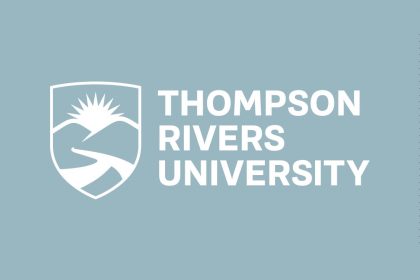We’re bringing you the latest on the BCcampus Research Fellows program. This update features changes to the program to increase inclusivity, break down silos, and explore opportunities to improve teaching and learning in the post-secondary sector of British Columbia.
Post by BCcampus’ editorial team
The BCcampus Research Fellows program has a history of success, enabling researchers to dive deep into their interests with the support and funding they need to investigate their inquiries. In previous years, funding and support has been spread across a variety of disciplines, including ed tech, scholarly teaching, and open education advocacy. Earlier this year, we decided to amalgamate the specialties and open the program up to a broader audience, including post-secondary educators and students across the province. Our goal is to support research in a variety of institutions across the B.C. post-secondary system.
Deliverables of the Program
Our research fellows will develop, conduct, and review their research topics, with a targeted completion date of January 31, 2022. The successful applicants will present their research outcomes at an upcoming BCcampus event or ETUG workshop, author a pair of blog posts about their research, and publish their results in an open format, acknowledging BCcampus as a funder.
All materials will be shared under a Creative Commons Attribution licence so that future research can build on the findings from today’s investigations and explorations.
2020–2021 Research Projects Made Possible via BCcampus
We’re excited to see what the following projects will reveal to our research fellows, as well as the opportunities they will create for teachers and learners in B.C.

Gripping the paddle with both hands: embedding Indigenous learning approaches into online education
Rob-Roy Douglas from Northern Lights College is looking at how Indigenous experiential and narrative learning can be integrated into the online education environment to improve student engagement and outcomes.
“This project will improve student comprehension of subjects that are challenging to deliver online,” shared Rob-Roy in his research proposal. “This will have obvious benefits to B.C. post-secondary education by increasing its effectiveness. As well, by explicitly incorporating Indigenous approaches to learning in cooperation with an instructor in the Aboriginal Education Department at Northern Lights College, this project will contribute to the Indigenization of post-secondary education in British Columbia.”
File of uncertainties: identifying themes and issues that act as barriers and supports when incorporating decolonizing and anti-racist knowledge into nursing practice with Indigenous clients
Leanne Kelly and Christina Chakanyuka from the School of Nursing at the University of Victoria are investigating the specific themes and issues that act as barriers and supports when incorporating decolonizing and anti-racist knowledge into nursing practice with Indigenous clients.
In their submission, Leanne and Christina explained, “As nurse educators, we know that student nurses are taking the necessary theory courses to learn culturally safe nursing practice. We are less knowledgeable about how students incorporate this knowledge and information and build it into their practical experience. The results of this project will assist in developing instructional strategies that enhance understanding and praxis of the knowledge for the benefit of both service providers and clients.”
Effectively moving away from traditional proctored exams in first-year physics courses
At the University of Northern British Columbia, Meghan Costello is researching how we can effectively move away from traditional proctored midterm and final exams in first-year physics courses in a way that will improve student motivation and understanding of the course material.
“I will be teaching a first-year, non-majors physics course fully online during both the summer and fall semesters at UNBC,” shared Meghan. “Rather than using predominantly textbook-style questions on assignments and exams, I am planning to incorporate a variety of question styles (i.e., project questions answered via video, interactive questions involving online simulations, and revised calculation questions with increased emphasis on explaining the underlying theory). I expect that these question styles will lead to more student questions during office hours, as well as increased student participation in tutorial sessions and increased student collaboration with peers.”
Pivoting to inclusion: Designing ancillary OER in a collaborative cross-institutional environment
Theresa Southam from Selkirk College with College of the Rockies will implement and measure the effect of Hockings (2010) Principles of Inclusion for 4–6 OER, asking:
- What difference does the application of inclusion principles make to instructional design when instructors are designing and using ancillary OER in an online environment?
- Do students perceive ancillary OER (e.g., videos, podcasts, formative assessments, collaborative peer-based learning, and homework) in an online environment as inclusive, and if so, how? If not, why not?
- If staff are asked to make institutional changes to be more inclusive in the online environment, how do they react? What is their perception of the importance of the principles of inclusion?
Theresa shared, “Students utilizing the open educational resources (OER) in this research project will be asked to reflect on the inclusive nature of OER in their course (e.g., the original intention and their perception of the success of inclusivity or the lack thereof) so that the research pays attention not only to principles of inclusion from the research, but to the voices of students.”
The pivot to online, on the front lines: measuring the real impact of alternative assessment in remote learning
At Vancouver Community College, Elle Ting will be studying the modes of alternative assessment implemented by VCC instructors and how successful they feel these have been in supporting academic integrity. She’ll also work to discover what makes the deployment of an alternative assessment tool/method successful versus unsuccessful, in real terms, and which educational technology supports can help facilitate effective implementations.
Elle explained, “This study will evaluate, using qualitative and quantitative metrics, what the pivot to online actually means to individual instructors, students, and disciplines in terms of the development and adoption of alternative assessment, and what the most appropriate alternative assessment solutions would be for VCC and other small to mid-size post-secondary institutions.”
Creating impact through community-based co-design projects within curriculum
Caylee Raber at Emily Carr University of Art + Design is investigating how community-based co-design projects with marginalized populations (both in-person and online) impact student learning when embedded within a course context.
“This research project will seek to evaluate the impact and value of community-based co-design projects on student learning, as well as student success post-graduation,” said Caylee. “Data will be collected from a range of participants through surveys and interviews, then analyzed and synthesized to determine key themes. A final report will summarize the findings and will suggest strategies for the continued development of such projects, which can be shared openly within Emily Carr and other institutions.”
